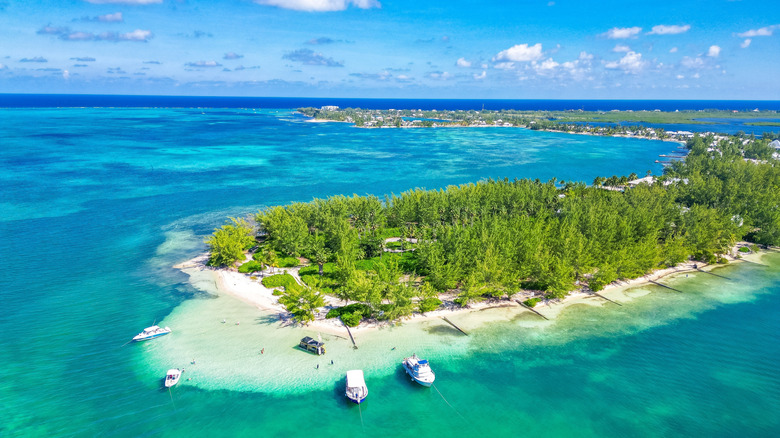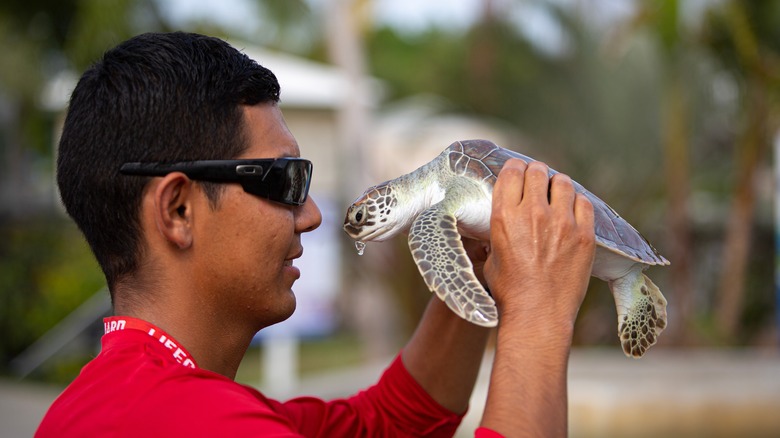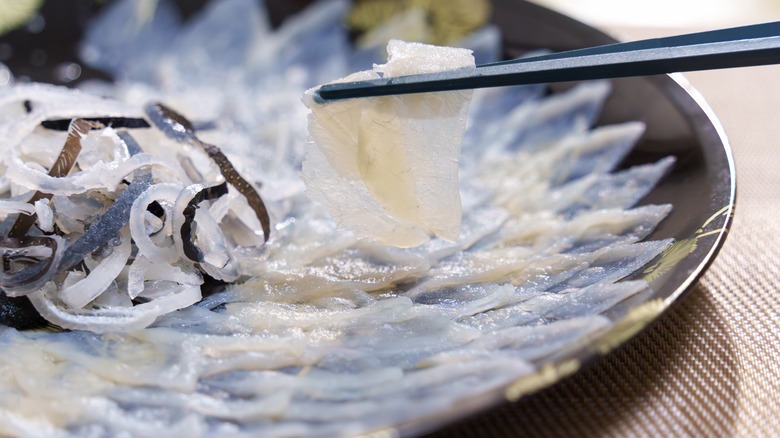The Popular Caribbean Delicacy That Could Have Deadly Consequences For Travelers
Feasting on the flesh of living creatures has been a contentious ethical issue for many decades now, and the number of Americans swearing off meat for a vegan or vegetarian lifestyle rises every year. Campaigns highlighting the argument against a carnivorous diet are often provocative — you've probably seen the billboard poster with a lineup of animals ranging from cute cats and dogs to a plump chicken asking us where we would draw the line on the pets vs. food scale. If reptiles were also included, sea turtles would probably fall into the too-cute-to-eat category for many people, yet their meat remains a delicacy in parts of the world including the Cayman Islands. In most other countries it is banned with laws in place to curb the illegal trade in eggs, meat, and shells from the beautiful endangered species. If that isn't enough to put you off the idea, consuming turtle dishes can make you seriously ill or even kill you.
Some sea turtle lovers might consider becoming mortally sick from eating a species struggling for survival poetic justice, but there are mitigating factors in the developing world. SEE Turtles, an organization founded in 2008 to protect the animals, stresses that a person living in a deprived coastal region might face a difficult choice between feeding their family and helping save the loveable creatures from extinction. As a relatively rich tourist, however, you would need to wrestle with the ethical and legal implications of sampling turtle meat on your travels.
What makes sea turtle a dangerous dish?
Aside from the ethics of eating an endangered species like the sea turtle, the health risks are a major consideration. In 2024, eight kids and one adult died on Pemba Island in the Zanzibar region off the coast of Tanzania after consuming turtle meat and a further 78 required hospital treatment. The cause of the deaths was chelonitoxism, a kind of food poisoning that comes from marine turtles. It is fairly rare but the results can be fatal and devastating. In 1961, 130 people in Kerala, India, were struck down after eating sea turtle, resulting in the deaths of 18 adults and children. It can be particularly deadly because there is no known cure.
Closer to the United States, sea turtle is still a delicacy in the Cayman Islands, a British Overseas Territory in the Caribbean. The government made the controversial decision to name turtle stew the official national dish in 2024. Eating sea turtle is legal in the small archipelago because it is home to the Cayman Turtle Center, a government-owned farm where you can handle live turtles and also buy meat raised for consumption at home or in restaurants. Typically, the stew is cooked with tomatoes, onions, and peppers and it is considered an important part of Cayman culture. While there has been no recorded cases of turtle poisoning in the Caymans, concerns have been raised about the health of the animals due to outbreaks of E.coli.
Other hazardous dishes around the world
The menus of the world are full of offbeat delicacies for an adventurous foodie's Bucket List. Some of them (such as foie gras in France) have ethical issues attached, and other foods around the globe can kill you. Perhaps the most notorious is pufferfish in Japan, a traditional dish called fugu that still attracts daredevil diners despite (or maybe because of) around 50 fatalities annually. The danger is a neurotoxin called tetrodotoxin that exists in certain parts of the fish and chefs preparing it must acquire a special permit. Many of the deaths occur due to amateurs doing it for themselves.
Elsewhere, in Korea, diners are known to choke to death while eating San-nakji, freshly-severed octopus tentacles typically served with ginger and sesame seeds. The dish is so fresh that nerve activity makes the tentacles writhe as if still alive, and the suction cups can potentially stick in the throat and stop you breathing. In the non-animal world, cassava and ackee fruit might seem innocuous enough but can also have fatal consequences. Bitter cassava contains cyanide which killed 28 Venezuelans in 2017 after they mistook it for its sweet relative, which has a far safer level of the poison. Ackee is a staple of Jamaican cuisine but unripened fruit contains a toxin called hypoglycin which can cause a severe illness known as Jamaican Vomiting Sickness. In extreme cases, it can result in coma or even death. If in doubt, head to the local McDonalds instead!


